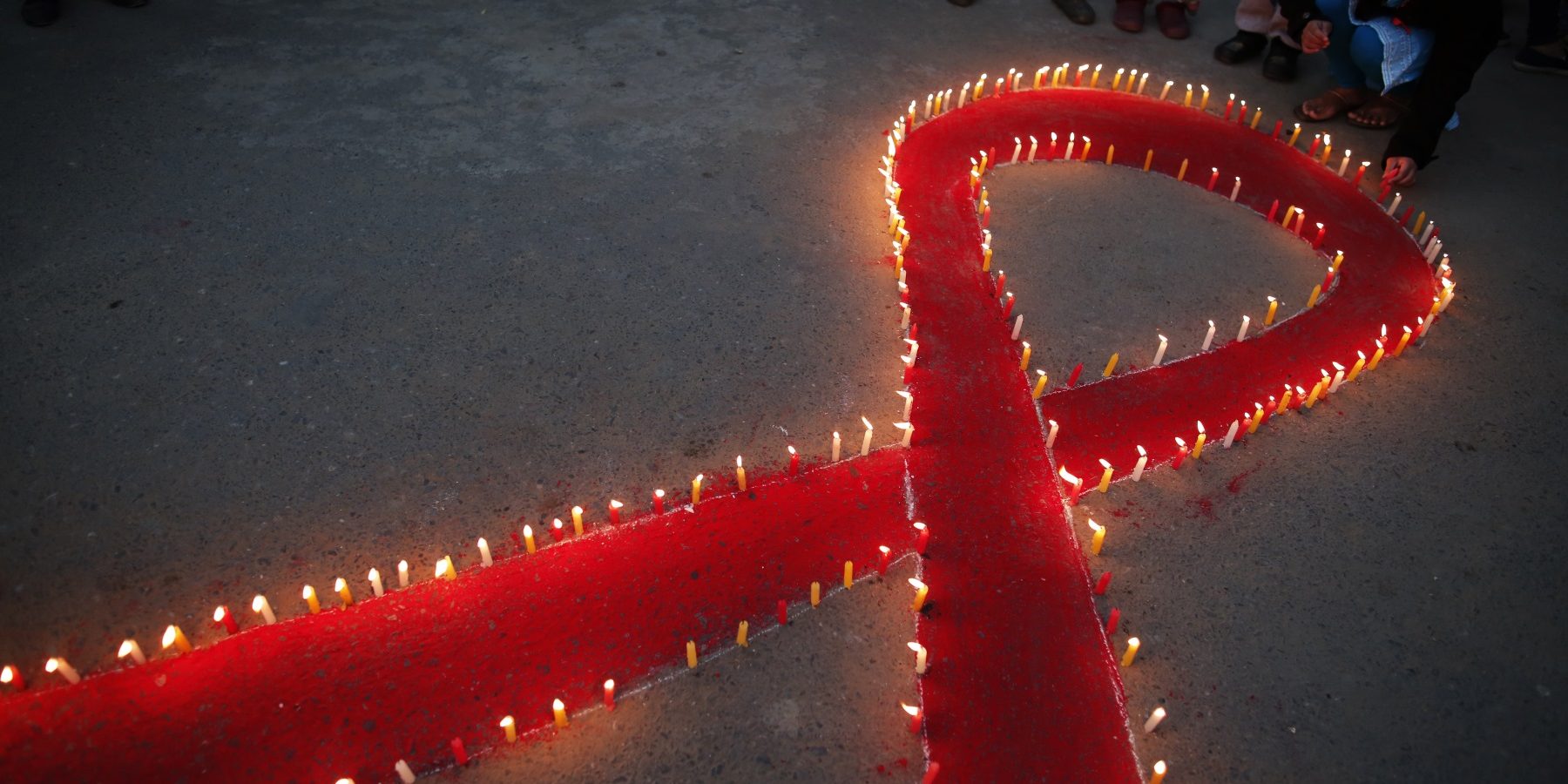Like any good millennial, Mahlon Randolph spends a lot of time on his smartphone. And when a little red notification bubble pops up on his screen, he pays attention.
“I’ll be like: ‘What’s that in there?,’” Randolph said on a recent weekday morning, sitting on a couch in his apartment in Decatur. “Then I’m like: ‘Oh, I gotta take my medicine.’”
That medicine is an antiretroviral drug called Biktarvy, and Randolph takes it to reduce the amount of HIV in his blood. He tested positive for the virus in 2014 when he was in college.
“I call HIV a mild inconvenience, if anything,” Randolph said with a slight laugh. “I have to remember to take a pill everyday, which often isn’t really hard.”
But that wasn’t always Randolph’s situation. After he was was diagnosed, it took him an entire year to seek treatment, for a variety of reasons.
For one, he didn’t like the first questions he’d often get from providers.
“Every time they would ask if I was gay, and that would always make me extremely uncomfortable, because I had not yet accepted my sexuality, my identity,” Randolph said.
Taking medication would also mean accepting his HIV status, which was no small thing. On top of that, Randolph says he felt very isolated and had trouble finding people to confide in.
“I think we all need somebody even if it’s one person, and that first year I had nobody, and it was really really tough to fight that alone,” he said.
Small Barriers, Big Impacts
Those barriers were enough to keep Randolph from seeking treatment, and those kinds of delays play a major role in the spread of HIV.
Eighty-seven percent of new HIV infections each year come from people not receiving care, according to The U.S. Department of Health and Human Services.
That’s why the Trump administration, as part of their plan to reduce the spread of the virus drastically in the next decade, is focusing on getting people into treatment quickly.
In metro Atlanta, one of the nation’s HIV hot-spots, groups have already been working to break down the barriers that often keep the most vulnerable populations from getting care.
One such group is Thrive SS, a social support group for black gay men living with HIV.
“That’s where we have invested interest, not only because we are black gay men that went through the linkage process, but it’s needed,” Daniel Driffin, one of Thrive’s co-founders, said.
Thrive offers transportation and housing services. And Driffin says some 3,000 people turn to it’s online support group for advice on living with HIV.
Sitting in his office in Atlanta, Driffin pulled up a private Facebook page to a post about a specific HIV treatment..
“I go back in four weeks to make sure it’s working, does anyone have any experiences on this pill?,” he said, reading from the page. “And literally 27 comments later, it’s someone now reassured in the process.”
Driffin said Thrive members also chat about bad experiences with healthcare providers, something he’s no stranger to.
“I actively remember walking into medical appointments where my doctors did not look me in my eyes; [they] did not talk to me, they talked at me,” he said. “That’s a turn off.”
He said one uncomfortable moment can be enough to keep someone from seeking care.
Olivia Chelko works with Positive Impact Health Centers, a metro Atlanta HIV clinic. She said staff there try not to waste those chances to engage with patients.
“If we’re providing medical care but missing those opportunities, we’re not going to be successful with [patients],” she said.
Eliminating Roadblocks To Treatment
At Positive Impact’s clinics in Decatur and Duluth, getting people with HIV into treatment starts with testing, which happens in a set of small rooms just off the lobby.
If a test comes back positive, a patient can see a physician and leave with a prescription the same day: all without leaving the clinic.
“We try to make sure there is not a single barrier that might be preventing you from not only seeking a test, to seeking treatment, to getting your meds filled,” Chelko said. “But also after that when you get home becoming compliant.”
This one-stop-shop approach is crucial to curbing HIV transmission in the southeast. Stigma, racism and poverty still keep people from seeking immediate treatment said Wendy Armstrong, who’s with Emory University and runs the Grady HIV clinic in midtown Atlanta.
“It’s a really important strategy because it’s a way to show that the healthcare system is invested in an individual and saying, ‘We care about your health,’” she said.
It may have taken Mahlon Randolph a full year to seek treatment for his HIV, but he’s glad he finally did.
“I’ve decided to live,” he said. “I’ve decided that to do that, I would take this medication, I would go see a doctor, because I want to help curtail the virus as it impact my community.”
Public health officials want a lot more people to reach that conclusion. Close to 40,000 new individuals receive HIV diagnoses each year, according to the Centers for Disease Control and Prevention.







